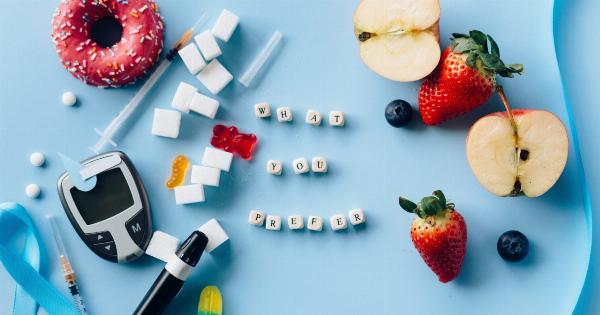Cancer is a complex and devastating disease that affects millions of people worldwide.
While there are various factors that contribute to the development and progression of cancer, emerging research suggests that insulin regulation and sugar consumption play significant roles in the growth and spread of cancer cells. This guide aims to provide an in-depth look at the relationship between insulin, sugar, and cancer, and how understanding this connection can help in cancer prevention and treatment.
What is Insulin and How Does it Work?
Insulin is a hormone produced by the pancreas, primarily responsible for regulating glucose levels in the blood. When we consume carbohydrates, especially those containing sugars, our bodies break them down into glucose.
The pancreas then secretes insulin to help transport glucose from the blood into the cells, where it can be used for energy. Insulin also signals the liver to store excess glucose as glycogen.
The Link Between Insulin and Cancer
Research has shown that excess insulin in the body can promote the growth and proliferation of cancer cells.
High levels of insulin can stimulate the production of insulin-like growth factors (IGFs), which are known to play a role in the development and progression of various types of cancer. Additionally, insulin has been found to enhance tumor cell survival, increase angiogenesis (formation of new blood vessels), and inhibit the body’s natural defenses against cancer.
Sugar Consumption and its Impact on Insulin Levels
The modern Western diet is characterized by its high consumption of refined carbohydrates and added sugars. This high sugar intake leads to frequent spikes in blood glucose levels, which in turn triggers the release of insulin.
Over time, the constant demand for insulin production can lead to insulin resistance, a condition in which cells become less responsive to the effects of insulin. Insulin resistance causes the pancreas to produce even more insulin, resulting in persistently elevated insulin levels in the bloodstream.
The Role of Insulin in Inflammation
Chronic inflammation is closely associated with cancer development and progression. Insulin resistance and elevated insulin levels have been linked to increased inflammation in the body, which can create an environment favorable for cancer growth.
Inflammation contributes to DNA damage, promotes tumor cell survival, and facilitates the formation of blood vessels that supply nutrients to cancer cells.
The Glycemic Index and Cancer Risk
The glycemic index (GI) is a measure of how quickly a food raises blood glucose levels. Foods with a high GI value cause a rapid spike in blood sugar, leading to a surge in insulin production.
On the other hand, foods with a low GI value cause a slower and more gradual increase in blood sugar levels, resulting in a more controlled insulin response. Several studies have suggested a positive association between high glycemic index diets and an increased risk of certain types of cancer, such as breast, colorectal, and pancreatic cancer.
Dietary Strategies for Insulin Regulation and Cancer Prevention
Adopting dietary habits that promote healthy insulin regulation can play a crucial role in reducing the risk of cancer. Here are some strategies:.
1. Reduce Sugar and Refined Carbohydrate Intake
Avoid or minimize the consumption of sugary beverages, processed snacks, desserts, and refined grain products. Instead, opt for whole foods like fruits, vegetables, whole grains, and lean proteins.
2. Consume a Low-Glycemic Index Diet
Choose carbohydrates that have a low GI value, such as legumes, non-starchy vegetables, and whole grains. These foods have a gentler impact on blood sugar levels and insulin production.
3. Include Healthy Fats
Incorporate sources of healthy fats, such as avocados, nuts, seeds, and olive oil, into your diet. Healthy fats help regulate blood sugar levels and promote satiety.
4. Increase Fiber Intake
Foods rich in dietary fiber, such as whole grains, legumes, fruits, and vegetables, help slow down the absorption of sugar and support healthy digestion.
5. Choose Lean Protein Sources
Prioritize lean sources of protein, such as poultry, fish, tofu, and legumes, while reducing the consumption of processed meats and high-fat animal products.
6. Moderate Portion Sizes
Practice portion control to prevent overeating and unnecessary spikes in blood sugar levels. Focus on mindful eating and listen to your body’s hunger and satiety cues.
7. Stay Hydrated
Drink an adequate amount of water throughout the day to support overall health and proper hydration. Adequate hydration helps maintain optimal cellular functions, including insulin sensitivity.
Conclusion
The relationship between insulin regulation, sugar consumption, and cancer is a complex one.
While more research is needed to fully understand the mechanisms involved, adopting a lifestyle that focuses on healthy insulin regulation through controlled sugar consumption and a well-balanced diet can potentially reduce the risk of cancer development and promote overall well-being.





























